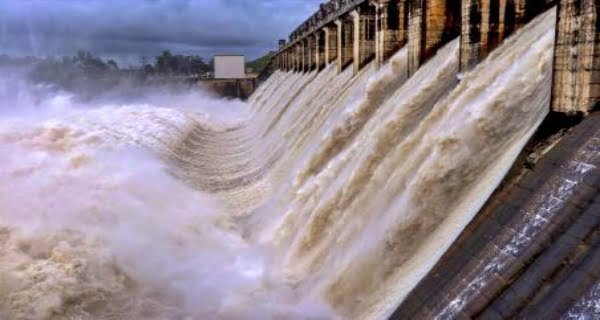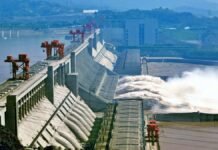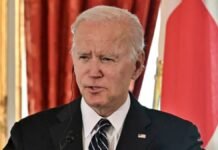
Beijing: China said on Wednesday that plans for any hydropower project on the Yarlung Zangbo River, known as the Brahmamputra in Assam, would be as low as in India. Will be made with full consideration of the interests of the neighboring countries. Chinese embassy spokesman Ji Rong underlined Beijing’s position in response to reports that a planned “super” dam on the short reach of Yarlung Zungbo, close to the Line of Actual Control (LAC) in Tibet, providing water security for India’s northeastern states. Can have far-reaching consequences.
Yarlung Zangbo, a trans-border originating in the Tibet Autonomous Region (TAR), flows through Arunachal Pradesh, where it is called Siang, and then into Assam before flowing into Bangladesh, it is known as the Brahmaputra. Chinese state media reported on Sunday that the dam would be built in Madog County, Tibet Autonomous Region, TAR, near the Indian state of Arunachal Pradesh, and that its hydropower generation capacity could be three times that of the Three Gorges Dam in central China. Has the greatest potential. China has already built several small dams on Yarlung Zungbo.

The project will be made keeping in view the interests of the countries
Responding to the new projects on Yarlung Zungbo, which will affect downstream countries, the spokesman said in a statement: “Any project will have full consideration for the impact on the interests of downstream areas and both downstream and upstream countries. With scientific planning and demonstration. Currently, the downstream development of the Yarlung Zungbo River is still in the initial planning and demonstration stages. It does not need to be explained further. ”
Ji also said that China has “always adopted a responsible attitude towards the development and use of cross-border rivers” and has a policy of “conservation goes hand in hand with development.”
Chinese state media reported that preliminary work on the “Super” dam with China’s Power Construction Corporation or PowerChina had begun on October 16, signing a cooperation agreement with the TAR government.






















































